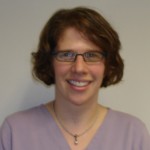Medicine from the heart . . . Pamela Adelstein
On Thursdays, the Daily Voice showcases selected Thursday Morning Memos, reflective essays about clinical experiences written by faculty, alumni, residents and students of the Department of Family Medicine & Community Health and, occasionally, contributors from other departments. Thursday Morning Memos is UMass Medical School’s homegrown version of narrative medicine, in which the authors process their experiences through writing. To learn more, visit: http://www.umassmed.edu/news/articles/2011/personal_stories.aspx.
|
Prolific "community doc" writer Pam Adelstein, MD, who works at the Codman Square Health Center in Dorchester and is a Family Health Center of Worcester graduate, has captured how interwoven our jobs are with the health of our community and our colleagues. I admire her ability to make this connection, reflect upon it, and continue to evolve her relationship with it.—Hugh Silk, MD |
 |
Disparities and Ironies
Snapshot #1:
"Dr. Adelstein, my MIND is worth more than that. My mind is worth more than that."
Those words haunted me, spoken during a conversation with one of my medical assistants. She asked me for advice on how to study for her nursing classes more effectively. She could not retain information because she was so stressed about her finances. Although our community health center tries to pay its employees a decent salary, its finances are tight during this difficult economic climate. She told me her hourly wage and asked me how I would support two children with such a salary if I were she. She expounded further on her opinions of her compensation, tightened her jaw, stared deeply into my eyes and stated emphatically, "Dr. Adelstein, my mind is worth more than that."
And I could not agree more.
Snapshot #2:
While I was driving to work, National Public Radio reported a breaking news story about a young man shot near my place of work. He was an innocent bystander, and they asked for anyone with information to notify their local police station. Awful, absolutely awful. I continued my commute.
Upon arrival at work, I learned that this young man is the brother of one of my medical assistants, and he is dead. Shock, nausea, sadness and grief came in waves, and the mood of the health center was vulnerable and wounded. Over the next few days the horrible story of a random act of violence unfolded over the news. But one undeniable fact remained: my medical assistant had lost her brother.
I work side by side with mostly women and men of color who make a fraction of my salary, who cannot take the simple act of walking outside their home for granted. Their children cannot get exercise by playing outside. It is unsafe, so they stay inside, watching television. The childhood obesity rate is rising. But better obese than dead.
My medical assistants have experienced:
- suspicious house fires that destroyed all of their belongings;
- robberies—their new Christmas gifts stolen;
- a boyfriend being car-jacked at gunpoint;
- homelessness;
- domestic violence;
- the murder of family members;- countless other tragedies to which I am not privy.
And yet, again today I see one of our medical assistants coming to work, greeting me with a big smile and a willingness to work, despite all of the adversity I know she is experiencing in her personal life. I am in awe of her. I think about the carjacking her boyfriend experienced and wonder, without her car how can she manage to get her child to daycare and then get to work on time? I see another medical assistant and I wonder, how does one report to work from a homeless shelter?
My medical assistants often come to me seeking life and medical advice. I put in a few acupuncture needles to reduce stress and headaches. I order pregnancy tests, discuss contraception, gynecological issues, rashes, questions about their children's health. Often they seek me out from a place of vulnerability, depression and anxiety. I talk to them about PTSD—how anyone who has experienced what they have would feel the way they do. They look relieved. It is not "just them."
Most of my medical assistants are only a few years more than half my age. While I, by then, had both a college degree and an MD, they, at most, have a small amount of post-high-school education. Our current life-experiences look so different. And yet, to a large extent, the quality of their work and our teamwork determine whether our clinic session runs smoothly. Will we have a great day at work, or will the day leave us feeling frustrated, leading to burnout and exhaustion? When I think about all they carry with them to work each day, it feels almost selfish to complain about a piece of equipment being out of place or a delay in having a patient ready.
I work at a progressive organization that cares for all of its employees. But this does not seem to be enough. My interactions with the medical assistants that transcend a strict interpretation of our clinical roles are not enough. Radio and newspaper coverage of these awful acts of violence is not enough. We need a revolution. My medical assistants and the community-at-large deserve the financial, emotional and physical security that we all work so hard to provide for our children. But I feel sad and weary.
I pour my heart and soul into my work to care for the underserved—the poor, the disenfranchised. On an individual level, it is immensely gratifying. But on a societal level, it seems to make little impact. I do not know how to fix these local and greater societal woes. Where do I go from here? For now, I am left questioning whether my individual interactions are enough. But in the meantime, I stand with my colleagues, in awe of them, and ready to support them in any way I can.